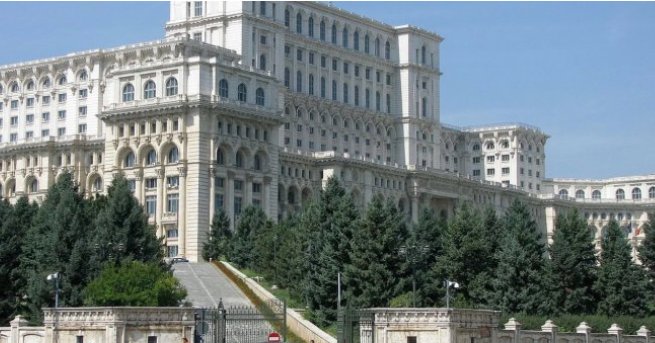The Social Democratic Party (PSD) has dominated the Romanian political scene since the fall of the dictator Nicolae Ceaușescu in 1989, having controlled the government for twenty of the last thirty years. For the past years, however, scandals have piled up. Recent events suggest Romanians have had enough of the PSD.
The fall of the PSD ‘social democrats’
Liviu Dragnea, then a PSD minister, had to leave the cabinet after accusations of electoral fraud in 2015. The party, which fears nothing, made him its leader two months later. He then became president of the Camera Deputaţilor before being caught —again— by the authorities. He was convicted of official misconduct and imprisoned in 2019, despite his efforts to change the law and avoid his being thrown in jail.
Prime Minister Victor Ponta has also been tarnished by scandals. Accused of corruption, complicity in official misconduct, and tax avoidance, it was eventually a tragic fire in a nightclub in Bucharest, which left 64 dead and more than 150 injured, that lead to the government’s downfall in 2015. Doubtlessly dedicated to defending the country’s general interest, he founded a new social-liberal party Pro Romania (PRO) in 2017 and hopes to make a comeback to prominence on the political scene.
Finally, the Parliament, favourable to PSD’s cause, tried twice (2007 and 2012) to dismiss the president Băsescu (2004-2014), who embraced the fight against corruption as a main theme of his presidency. The centre-right People’s Movement Party (PMP) was founded in 2017 to support his political action.
Used to getting Romanians out on the streets - though generally not in their favour -, the PSD started a power struggle with the legal system, especially with the head of the anticorruption public prosecution department, Laura Codruța Kövesi, famous for leading the investigations that resulted in Liviu Dragnea’s imprisonment. She was eventually chosen to become EU Chief Prosecutor.
Additionally, since 2014 the PSD has found a formidable opponent: president Klaus Iohannis. A liberal and fervent pro-European, he was affiliated to PNL (National Liberal Party) until his election which obliges him to be independent of partisan influence and he makes life hard for the government, which returned the sentiment. In 2019, he used his constitutional power to hold a referendum to ban the system of pardoning and giving amnesties to those convicted of corruption, as well as ministerial rulings.
With a voter participation rate of 43% but 86% in favour, the non-legally-binding referendum directly targeted Viorica Dăncilă’s ‘social democrat’ government. This is a social-democracy that doesn’t hide its social conservatism: the government called a referendum to limit marriage to a heterosexual union in the constitution. However, the referendum was a win for freedom, with only 20% of the electorate came out to vote (making the election invalid), despite millions of euros spent on the campaign by the government and the vote being lengthened to two days.
The elections have come one after the other, and resemble each other for the party whose membership to the Party of European Socialists (PES) in the European Parliament was ‘frozen’ in 2019. In the local elections in September, the PSD lost 8 regional presidencies, while the PNL won a third of the big cities (including Bucharest). During the most recent European elections, the PNL took first place, with the PSD seeing its result shrink by 15 points, obtaining a mere 22% of the votes.
Altercations in parliament
In November 2019 presidential elections took place. Klaus Iohannis fought for a second mandate and the PSD decided to side with the prime minister Dăncilă, while opinion polls left little doubt of Dăncilă’s defeat. Nevertheless, before the PSD’s defeat was even official (Klaus Iohannis received 66% of the votes in the second round, meaning it was PSD’s worst defeat in history), there was dissent in the governmental coalition with the partner ALDE (Alliance of Liberals and Democrats, not to be confused with a European party of the same name), when ALDE left the government, bringing about its downfall a month before the first round of elections.
The president Iohannis then charged Ludovic Orban (PNL) with forming a new coalition government. With only 82 representatives out of a total of 329 seats, the liberals persuaded the Hungarian minority party UDMR (Democratic Alliance of Hungarians in Romania) and the liberal-progressive party USR (Save Romania Union) to join them. Only, a new vote of no confidence started by the vengeful PSD brought down the young government in February, aiming to call an early election. These plans, like many others, would however be buried by the pandemic which spread around the entire world. To avoid a chaotic standstill in the country, the Camera Deputaţilor joined forces and took back Ludovic Orban as head of government.
Alternance confirmed
Following an alliance in 2012, the PSD and PNL had won 60% of the vote, thus controlling over two thirds of the both chambers. In 2016, the two parties went their separate ways, with the PSD proving its electoral dominance: by winning 45% of the votes, it had 154 MPs and 67 senators (in other words, a little less than half), while the PNL ending up far behind with 20% of the votes (69 MPs and 30 senators). The liberal-progressive party USR managed 30 MPs, the Hungarian minority 21 (one more than ALDE, now merged with PRO).
Unsurprisingly, the campaign focused first and foremost on the various ‘scandals’, everyone refusing to take responsibility for the authorities’ dubious management of the health crisis. President Iohannis invested a lot in the election, supporting the government’s actions, even though it made a dent in his partisan impartiality->https://www.euractiv.com/section/politics/short_news/romanian-president-takes-sides-makes-things-awkward/] supposedly guaranteed by Romanian constitution.
For this election, USR allied with PLUS (Party of Liberty, Unity and Solidarity) headed by Dacian Cioloş, who is also the head of the European party Renew Europe, which includes the German FDP and French president Emmanuel Macron’s party LREM. Finally, the PSD stood firm and wrested back first place with close to 29% of the vote while the PNL got 25.2% of the vote (+5% compared to 2016). With hundreds of MPs, the ‘leftwing’ party won this election while also losing 16 points. Nevertheless, as promised, the PNL, USR-PLUS (15.6% of the votes) will form a coalition with the minority Hungarian party that managed to stay in parliament with about 5.7% of the vote, to chase the ‘social-democrats’ with a narrow absolute majority. On the other hand, the former president Băsescu’s party PMP and former prime minister Ponta’s party PRO Romania didn’t manage to meet the critical threshold 5% to be allocated seats. Worth noting is the good results for the eurosceptic and ‘corona-sceptic’ party, close to the the Orthodox Church, which advocates for reunification with Moldavia: Alliance for the Unity of Romanians which amassed 8.4% of the vote. The results in the Senate were roughly the same.
Even more importantly, voter participation dipped to a level never seen before: hardly 31% of voters came out to elect their representatives, partly because of the health situation in the country, but certainly also to express their anger towards politicians which do not listen to them.



Follow the comments: |
|
